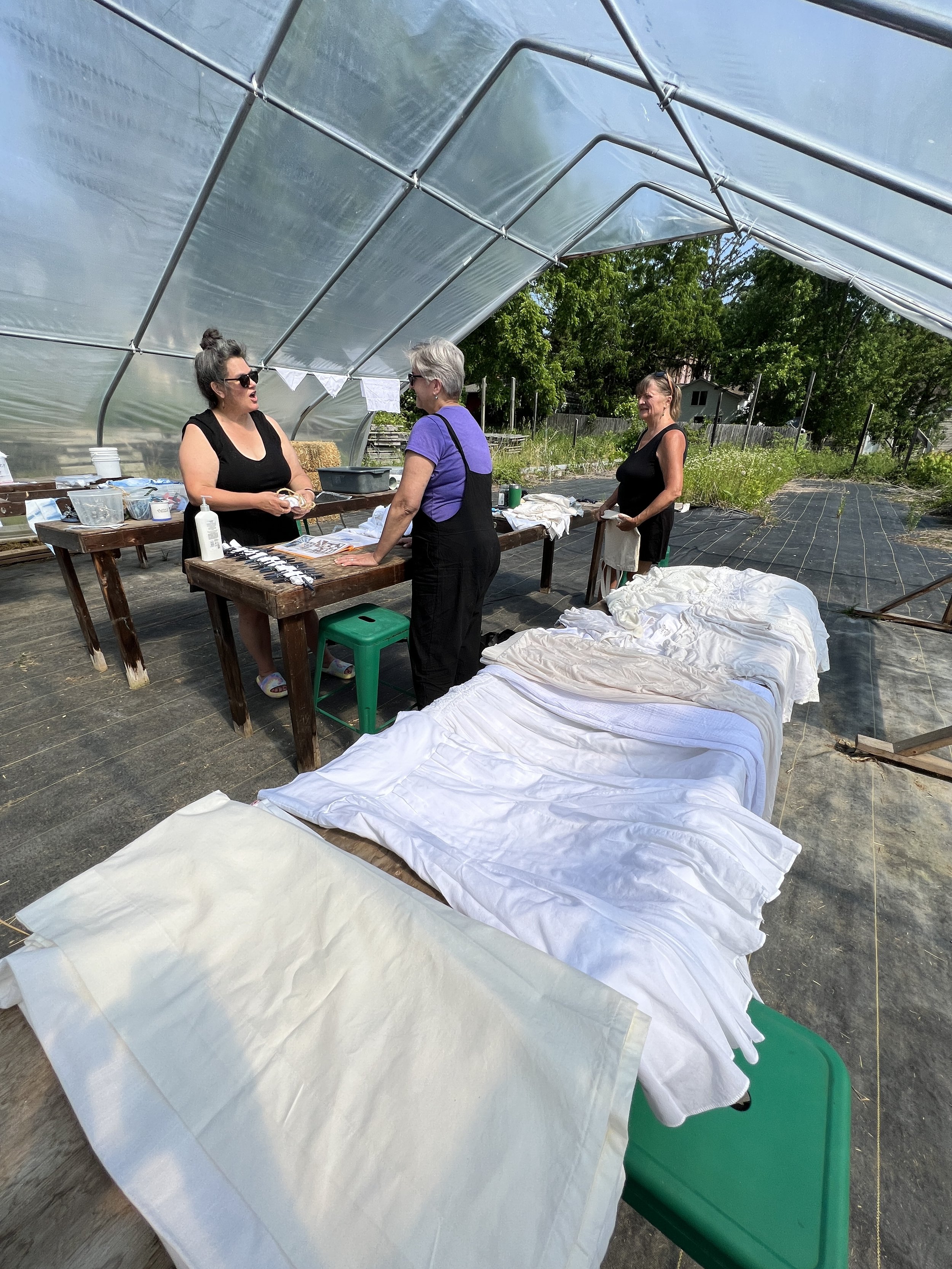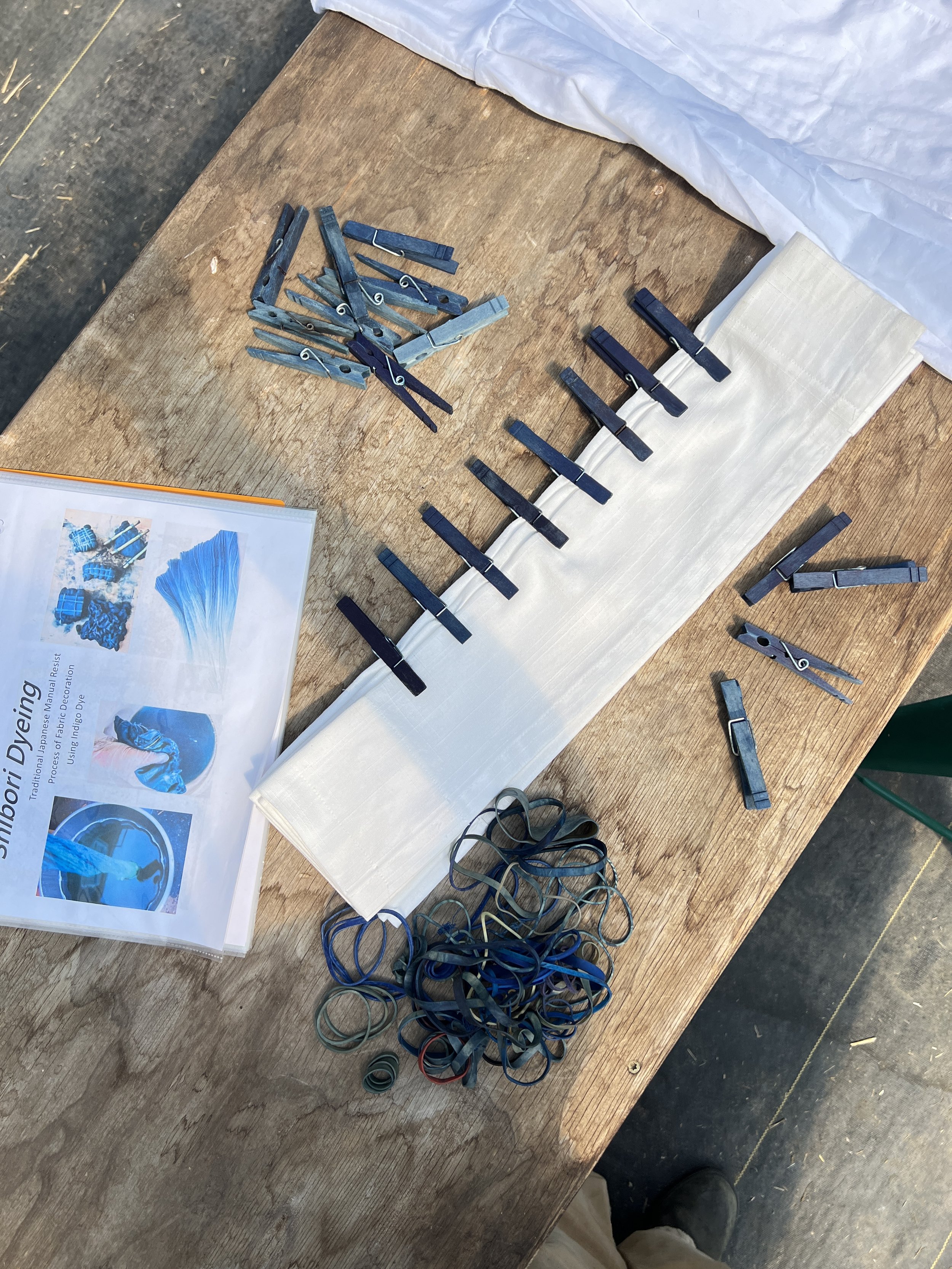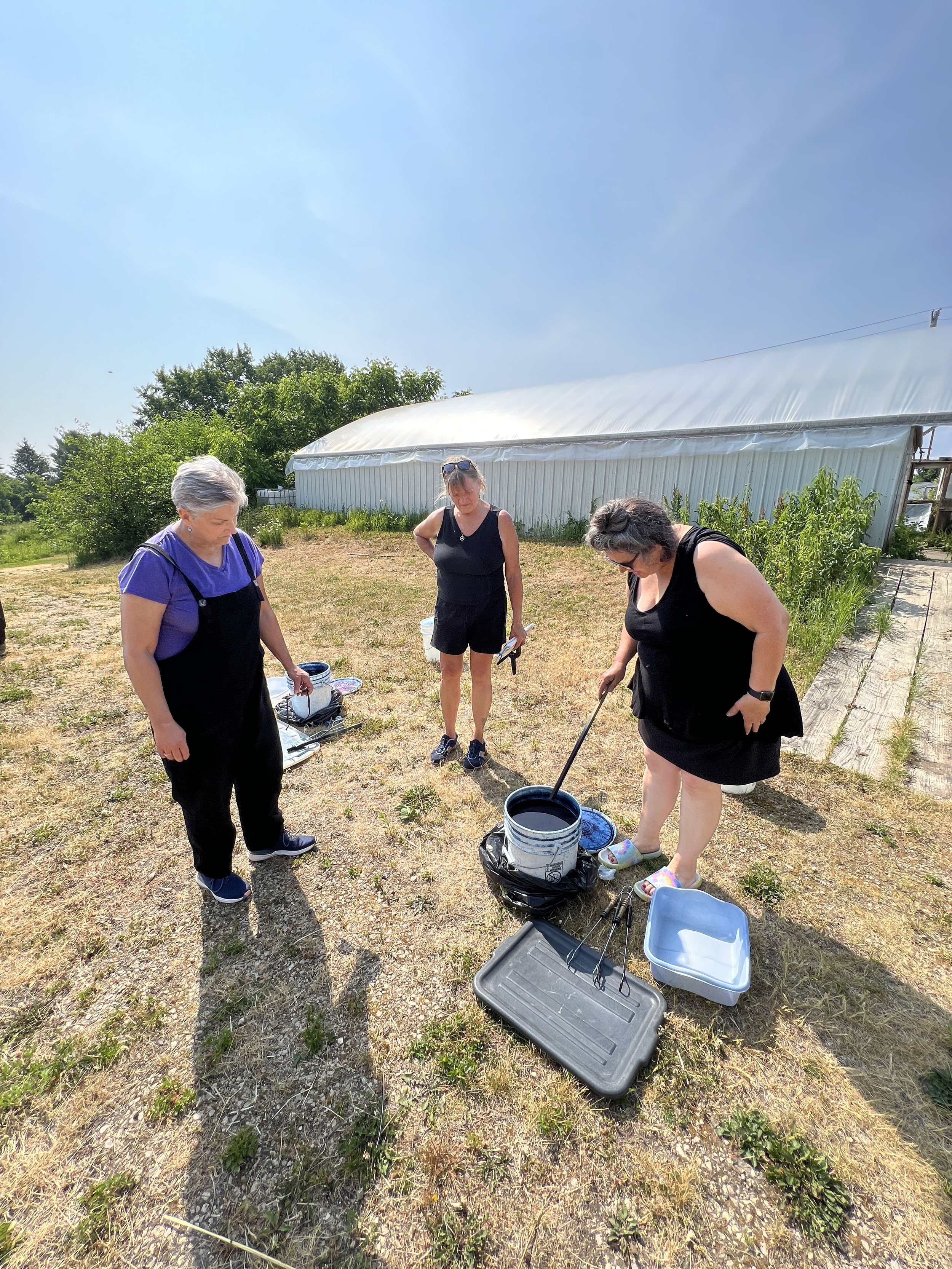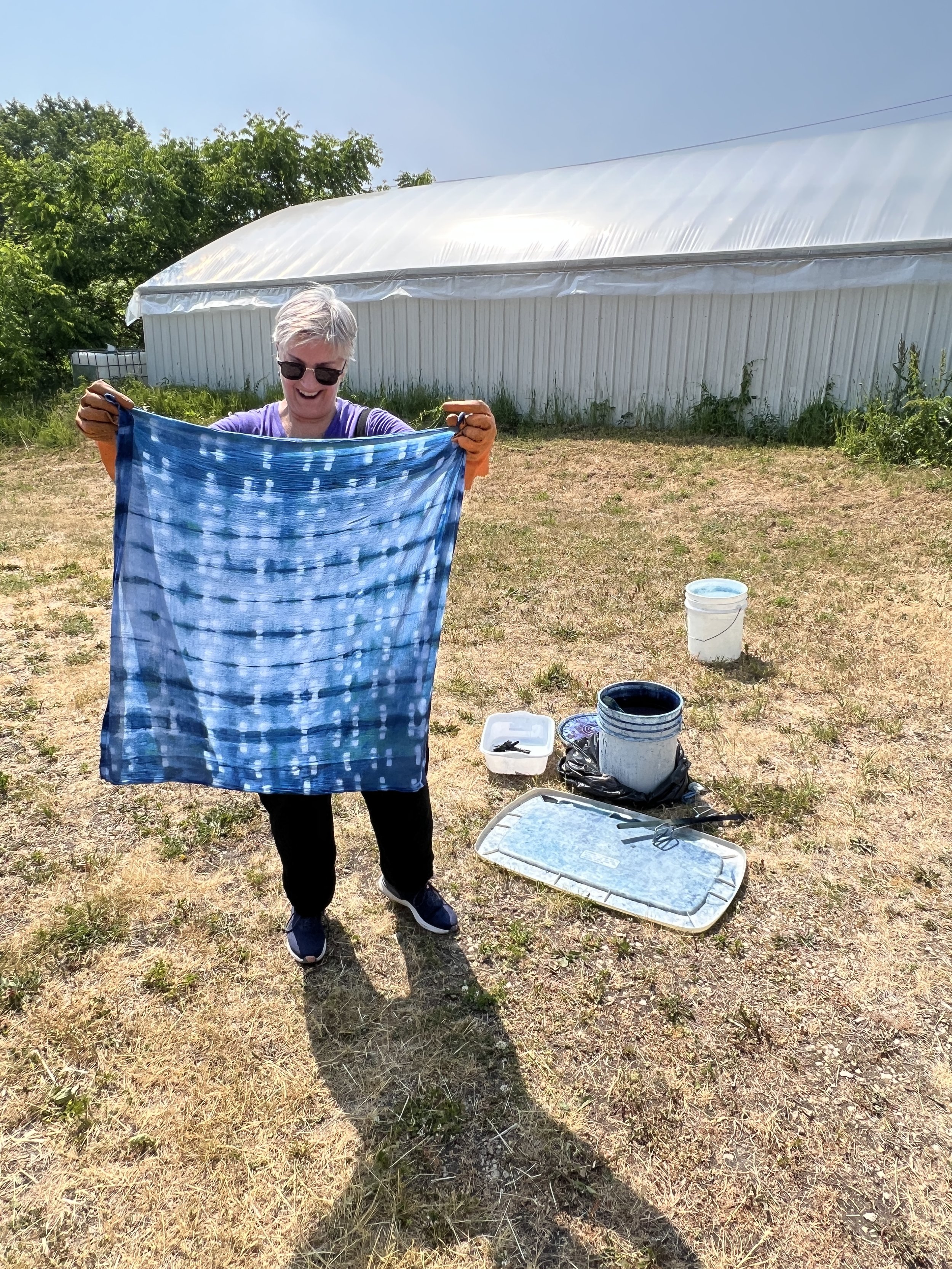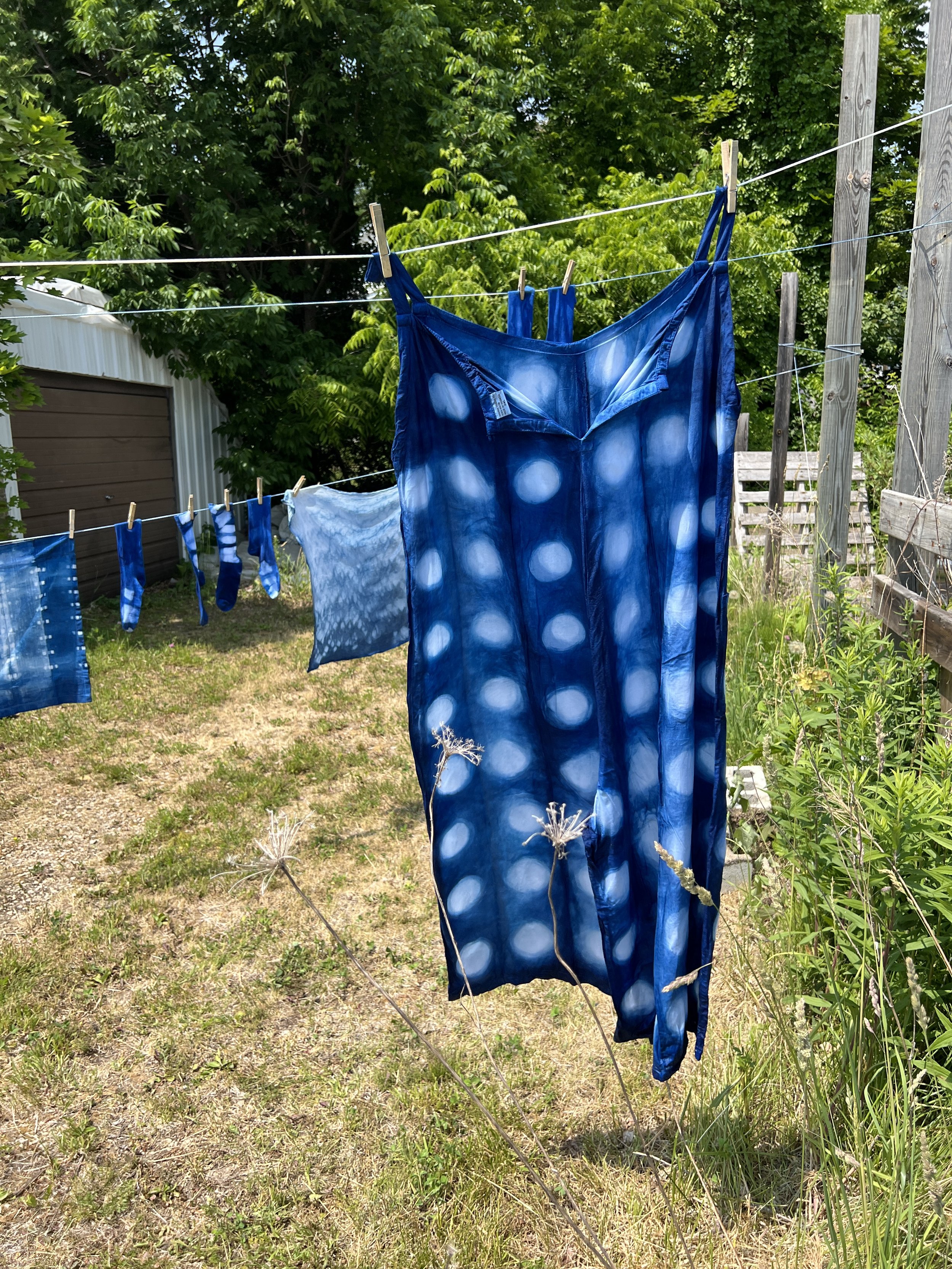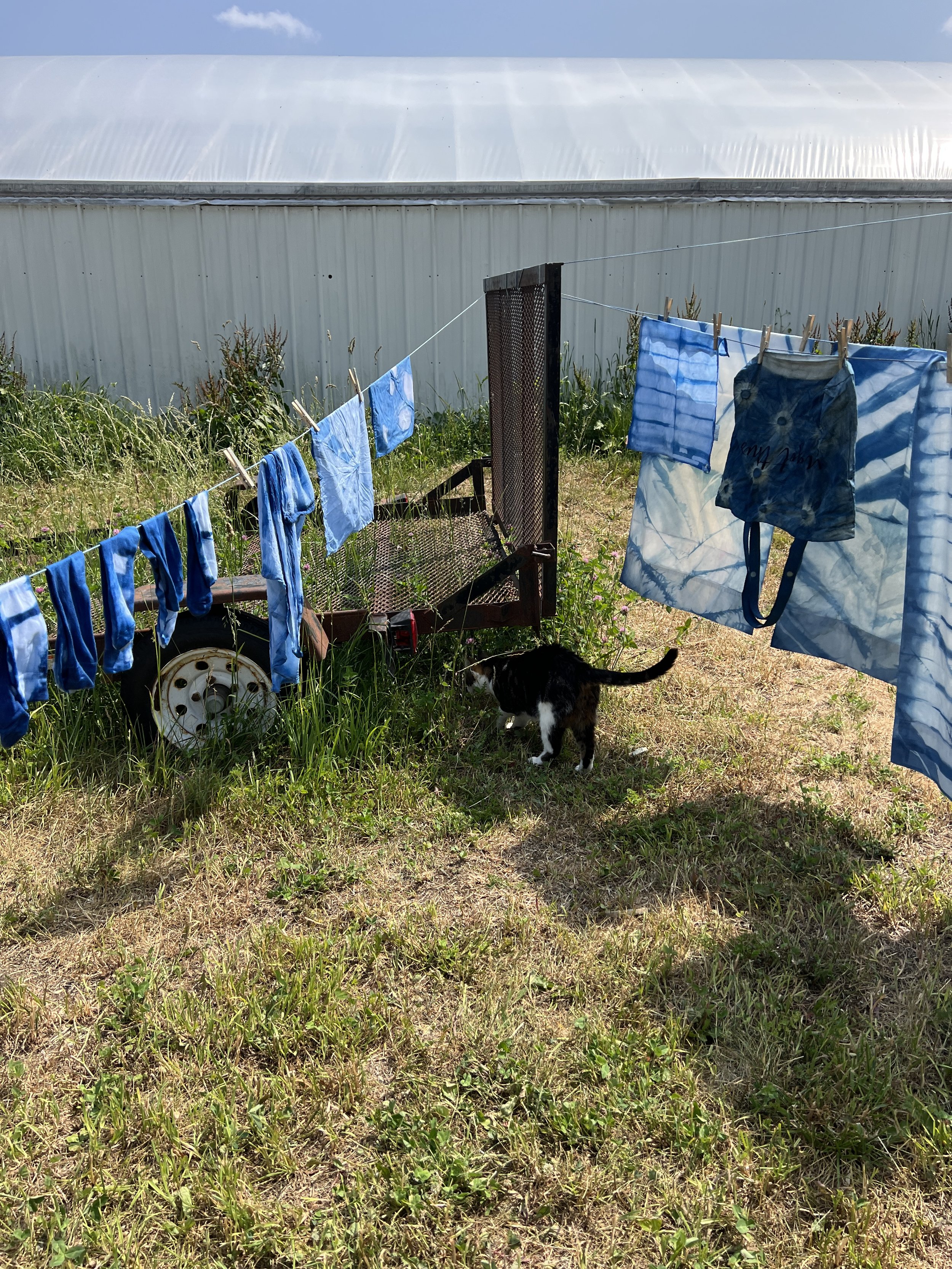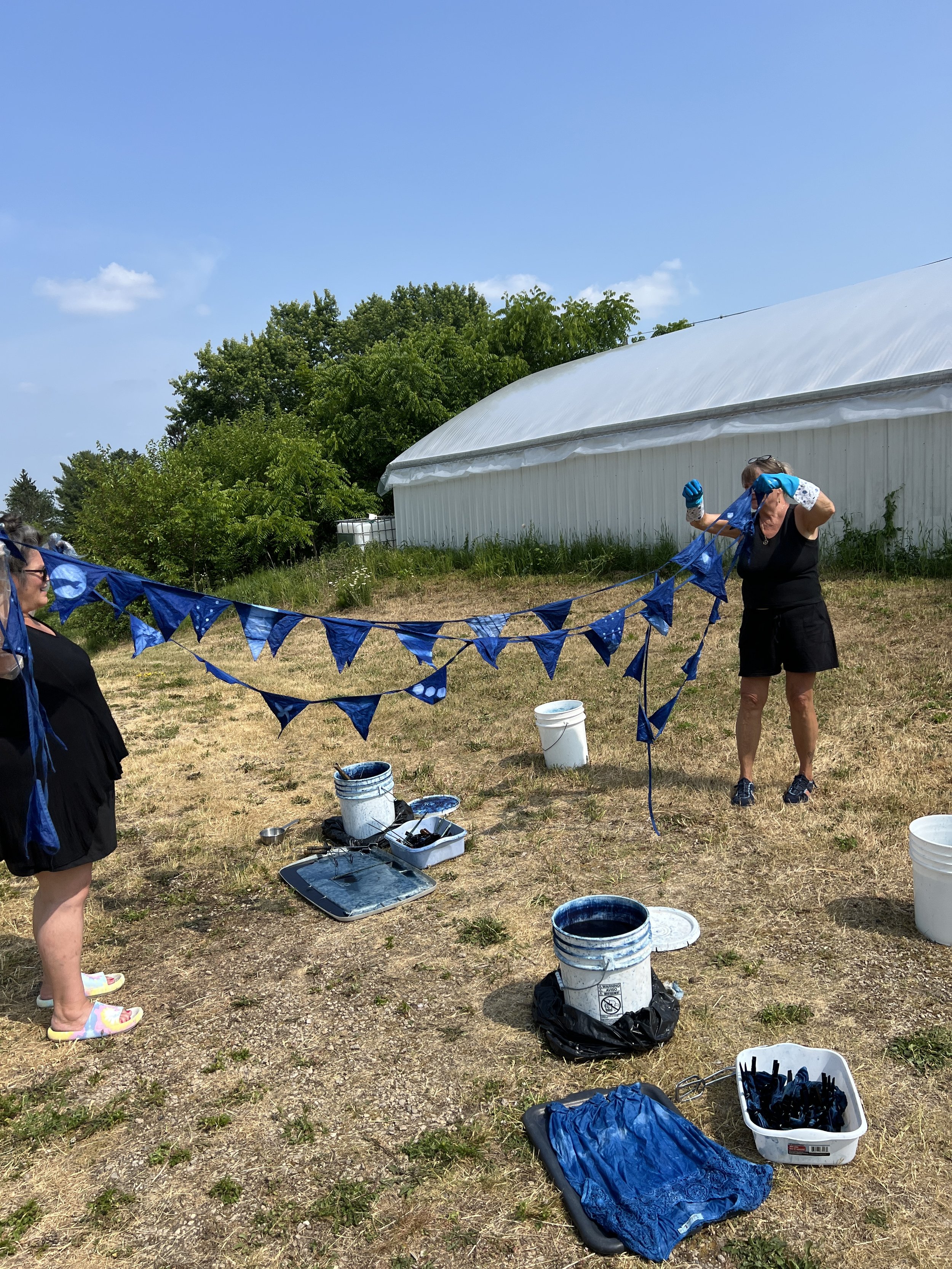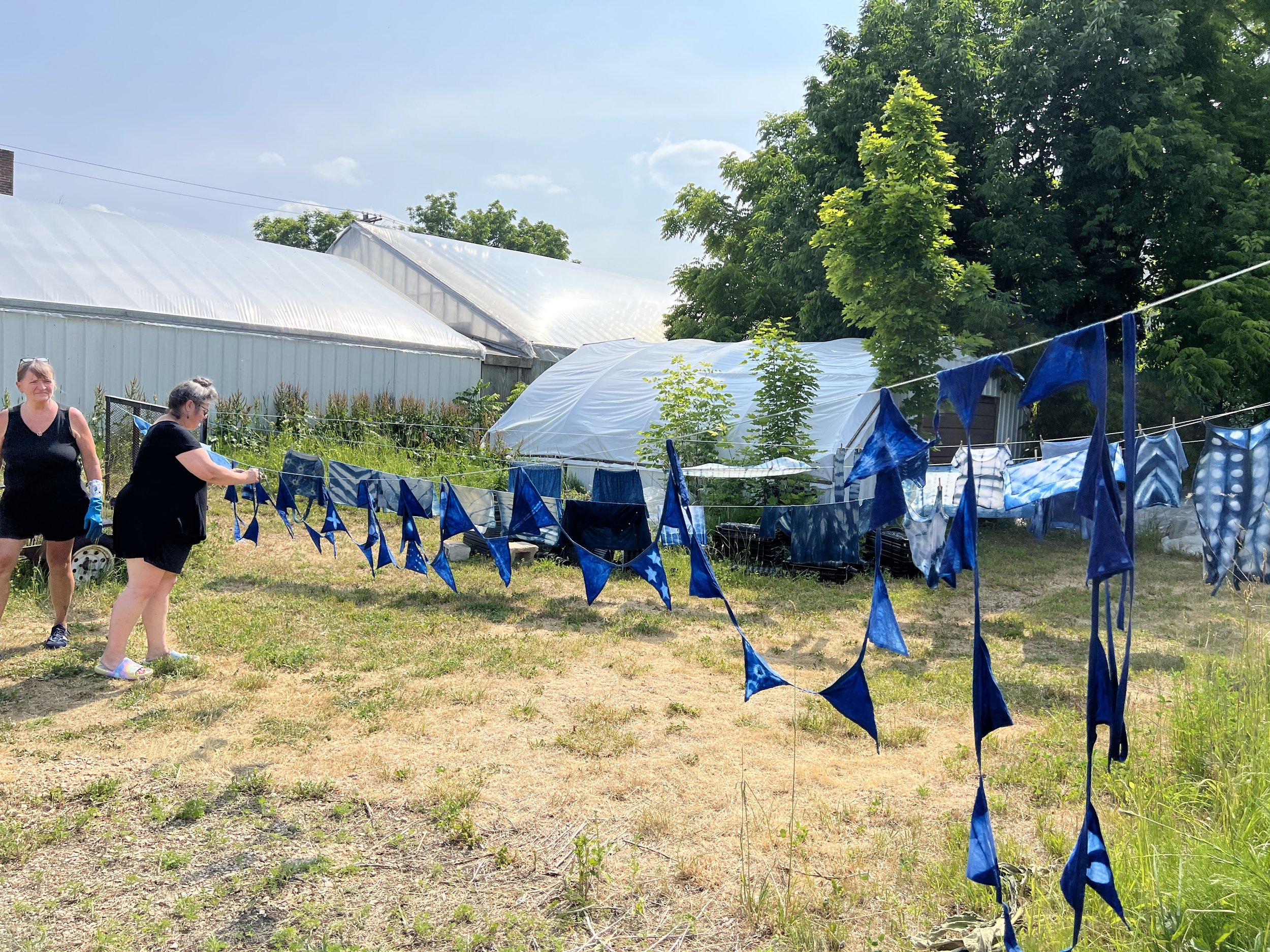This traditional Japanese technique of fabric folding and binding makes gorgeous repetitive patterns on fabric and is dyed with Indigo. We will learn a bit about the history and tradition of Shibori and about Indigo dyeing around the world. We will then try some ourselves using clips, tubes, bands and other items to make resists on our fabric for dyeing. Ignite your innovation and creativity! This fun and kind of addictive activity gives instant results and makes you want to try many more. It is magical to observe the oxygen react with the Indigo, creating all shades of ‘blue jeans’ blue.
Instructions:
Please bring a sturdy pair of long-cuff waterproof household chore gloves to class.
Wear clothing and shoes that can become stained with dye. (Hint: Black clothes won’t stain!)
It is wise to use a body and hand lotion before beginning to dye. It coats the pores of your exposed skin and helps minimize stains from dye splashes.
Bring many 100% cotton or linen items with you to dye!
You can bring a twin flat sheet and tear it into sections to practice lots of folding and resisting techniques. Cloth pieces can become pillow covers, gift wrapping and bags. Cotton dish towels, t-shirts, leggings, aprons, blouses, socks, sports bras, linen table cloths, hankies, the list goes on and on! Avoid bringing anything that is very heavy-weight or thick, as it is difficult to fold and tie. Avoid really large items as they won’t fit in our dye vats. Single garments or small household items are best. We have several hours of dyeing time, so bring many good items to keep yourself busy.
Some items for dyeing will be available to purchase in the class, too, so bring a few dollars in cash to take advantage of that option.
Date: Sunday, June 9
Time: 9:00 am - 4:30 pm
Lunch will be provided.
Ages: 12+
Materials Fee: $30
Location: Viroqua, WI
Sliding Scale Course Fee Guidelines (not including Materials Fees)
Supporter Level Ticket: $115
If you move through the world with financial ease and the means to fulfill many of your wants as well as your needs – you are able to eat out when you want, abundantly meet your needs through employment or can comfortably not work, have access to family wealth, own property, etc. – consider paying at this level, which will help us ensure the long term sustainability of our programs while keeping our offerings accessible to those with access to fewer resources.
Sustainer Level Ticket: $90
If you are able to meet your needs with relative ease while budgeting your educational and entertainment spending – for instance, you are able to take classes and eat out occasionally as long as you are mindful – consider paying at this level, which will help sustain the work of the Folk School at a modest level.
Supported Level Ticket: $65
If you struggle to fund your basic needs and have limited access to resources in your family and community, or if you would not be able to access this offering without a discounted payment option, consider paying at this level. We value your presence and contributions to our community and do not want any economic circumstances to be a barrier to attendance!
Instructor Bio — Martha Buche
Since Martha noticed other kids copying her artwork ideas, ages ago, she has considered herself an artist and teacher! She spends her autumns and winters teaching in classrooms to all ages. In the springs and summers she teaches at Folk Schools around the Midwest. She loves making meaningful and beautiful things, often with natural materials, and sharing those skills. Martha believes that everyone has a measure of creativity and feels called to help others find outlets for their own unique expression. She is lately delighting in helping her family rediscover the traditions and language of her Potawatomi heritage. After galivanting for years on three continents, she is happy to call the Driftless region of Wisconsin home.


